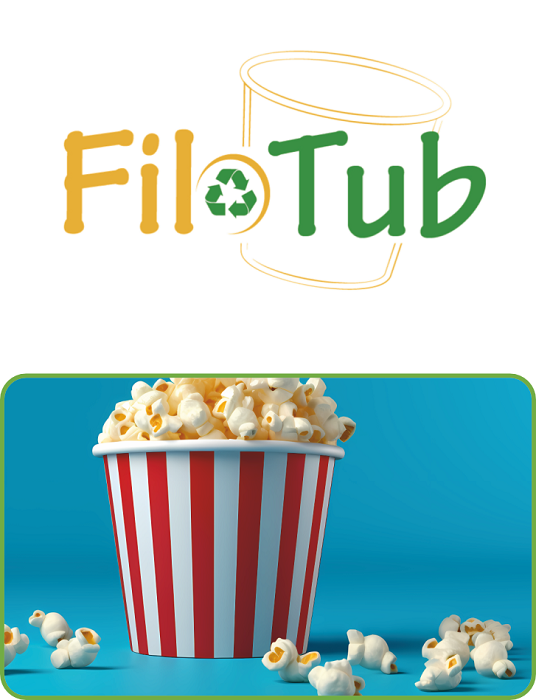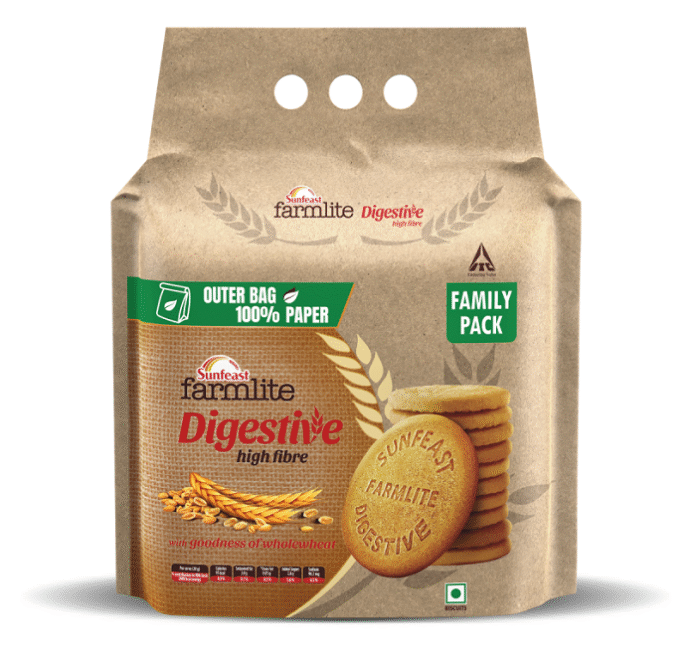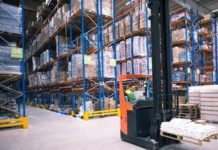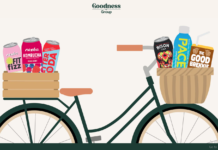In tune with this year’s World Environment Day theme of ‘Ending Plastic Pollution Globally,’ Indian multinational ITC has reaffirmed its commitment to contribute meaningfully to the country’s initiatives to manage, recycle and replace plastic packaging waste.
ITC’s integrated strategy focuses on large-scale and impactful community-based waste management programs as well as investments in cutting-edge sustainable packaging innovations, anchored on a robust three-pronged framework of ‘No plastic, Better Plastic and Less Plastic.’
This innovative approach, the company says, not only encourages ITC to continuously improve recyclability and optimize packaging across its own FMCG brands but also enables it to offer a bouquet of sustainable packaging solutions for a range of consumer industries, replacing plastic with biodegradable materials, designed for recycling.
ITC says it achieved plastic neutrality status for four years in a row, having collected and sustainably managed 76,000 tons of plastic waste in FY 2024-25. The company’s integrated waste management initiatives has also earned it the distinction of being a solid waste recycling positive enterprise for 18 years.
Going forward, ITC aspires to make 100% of its packaging recyclable, reusable, compostable, or biodegradable by 2028, as a part of its bold Sustainability 2.0 Vision.
ITC’s multi-dimensional initiatives to curb single-use plastic pollution aim to contribute to the government’s larger vision of Swachh Bharat and resonates strongly with the Center’s recent nationwide initiative of ‘One Nation, One Mission: End Plastic Pollution,’ which encourages citizens to adopt eco-friendly habits and reduce plastic waste.
Speaking on the occasion of the World Environment Day, S Sivakumar, group head – Agri and IT Businesses and Sustainability, ITC, said, “As a part of its credo of ‘Responsible Competitiveness’, ITC has adopted a 360-degree approach towards enabling a circular economy. The integrated strategy includes spearheading a number of scalable, replicable and sustainable community-led waste management programs, while driving a robust sustainable packaging plan anchored on the principle of ‘No plastic, Better Plastic and Less Plastic.’
“This framework inspires us to innovate and optimize packaging across our businesses and operations, besides offering a range of eco-friendly packaging solutions for various industries.”
ITC’s plastic sustainability model comprises of the following three strategic pillars – No Plastic, which focuses on enabling industry-wide transitioning to sustainable, non-plastic packaging alternatives; Better Plastic, which promotes the use of recyclable plastics and improved circularity in packaging and Less Plastic, which aims to reduce plastic usage through innovative design and material optimization.
The packaging industry is undergoing significant transformation as customers are seeking biodegradable solutions that replace single-use plastics and comply with stakeholder and regulatory expectations across various sectors, including food service, pharmaceuticals, beauty, and electronics.
Sustainable alternatives
Responding to this trend, ITC’s ‘No Plastic’ approach enables the company’s Paperboards & Packaging businesses to develop alternative sustainable packaging solutions including a range of biodegradable paper-based packaging and premium molded fiber products made from plant-based renewable natural fibers. To bring these innovations to life, ITC has recently established a molded fiber manufacturing facility in Madhya Pradesh.
Some of ITC’s sustainable packaging brands that cater to various industry needs include the ‘Filo’ series – a range of recyclable, compostable and barrier coated boards that are suitable for food and beverage applications and eliminate the use of plastic filament coatings, ‘Bioseal’ – a bio-compostable food-grade coating, ‘Ecobyte’, a differentiated B2C range of eco-friendly packaging products, among others.

‘No Plastic’ packaging innovations in ITC’s own FMCG business include the Aashirvaad Khapli Atta pack, which features an eco-friendly dual-layer ‘bag in bag’ design. The outer pack is made of 100 % paper, while the inner pack is a recyclable pouch, replacing conventional laminated packaging. In another example, the Sunfeast Farmlite Core Digestive large pack was launched in a 100% paper outer bag.
‘Better Plastic’ initiatives, which focuses on packaging recyclability, are reflected in several ITC FMCG categories. For instance, ITC’s agarbatti brand Mangaldeep’s 3-in-1 scent portfolio shifted from multi-layered plastic laminates to 100% mono-material laminates. Fiama Handwash was launched in a recyclable monolayer pouch, replacing the multi-layered structure. Even the PET bottles of Fiama Showergel and Handwash contain 50% recycled plastic.
Similarly, some of the recent ‘Less Plastic’ initiatives among ITC FMCG brands include design optimization undertaken for the packaging of Engage deodorant spray cans, which resulted in a reduction of 31% in packaging weight.
Community partnerships
ITC’s flagship waste management program ‘Well-being Out of Waste (WOW)’ focuses on driving behavioral change and creating awareness about waste segregation among communities in collaboration with urban local bodies. ITC WOW’s outreach spans 29 million citizens across 7.2 million households. The program has supported sustainable livelihoods for over 17,900 waste collectors.
As a part of ITC’s Mission Sunhera Kal social investment program, a community-led Decentralized Solid Waste Management model has also been implemented across towns, villages and temples. This program, operational in 34 districts across 12 States, has reached out to over 75 lakh households. The initiative focuses on minimizing waste to landfill by managing waste at source, promotes plastic circularity among citizens and supports livelihood of rag pickers.
In another unique initiative, ITC’s Foods brand YiPPee! has launched the ‘Yippee! Better World program,’ creating awareness about plastic waste management among students. During 2024-25, the intervention reached out to 14 lakh children across 4,175 schools. This initiative, along with ITC’s Social Investments Program has, provided schools with over 1,125 benches and tables and 350 sports kits made from recycled plastic.
In line with its ethos of ‘Responsible Luxury, ITC Hotels Ltd. has also reduced usage of single-use plastic from 150 touch points across hotel operations, helping eliminate nearly 2.5 Lakh Kg of plastic per year.
IndiFoodBev — authentic, impactful and influential
An English-language food and beverage processing and packaging industry B2B platform in print and web, IndiFoodBev is in its third year of publication. It is said that the Indian food and beverage industries represent approximately US$ 900 billion in revenues which implies more than 20% of the country’s GDP. Eliminating the wastage on the farmside can help to deliver more protein to a higher number of the population apart from generating sizable exports. The savings in soil, seeds, water, fertilizer, energy and ultimately food and nutrition could be the most immense contribution that country is poised to make to the moderation of climate change.
To improve your marketing and grow sales to the food and beverage processing and packaging industry, talk to us. Our research and consulting company IppStar [www.ippstar.org] can assess your potential and addressable markets in light of the competition. We can discuss marketing, communication, and sales strategies for market entry and growth.
Suppliers and service providers with a strategy and budget for targeted marketing can discuss using our hybrid print, web, video, and social media channels to create brand recognition linked to market relevance. Our technical writers are ready to meet you and your customers for content.
The second largest producer of fruit and vegetables in the world is continuously expanding processing capacities and delivery systems with appropriate innovative technologies. We cover product and consumer trends, nutrition, processing, research, equipment and packaging from farm to thali. Get our 2025 media kit and recalibrate your role in this dynamic market. Enhance your visibility and relevance to existing markets and turn potential customers into conversations. Ask for a sample copy of our bi-monthly in print or our weekly IndiFoodBev eZine each Wednesday.
For editorial info@ippgroup.in — for advertisement ads1@ippgroup.in and for subscriptions subscription@ippgroup.in
Naresh Khanna – 10 February 2025
Subscribe Now












